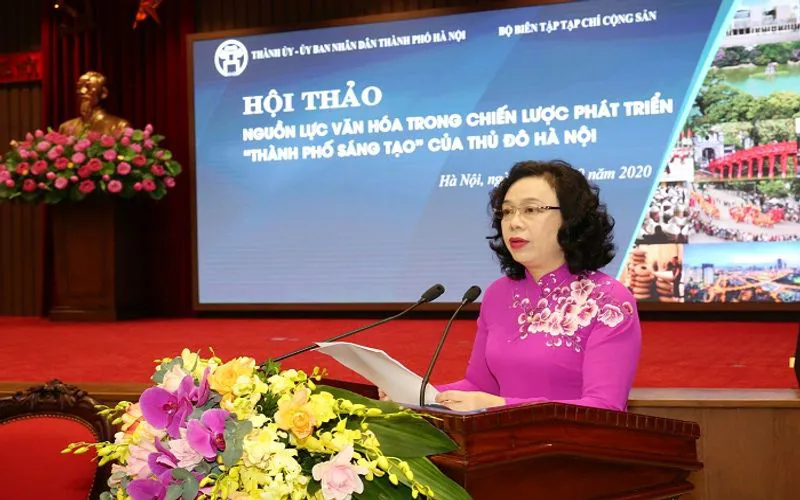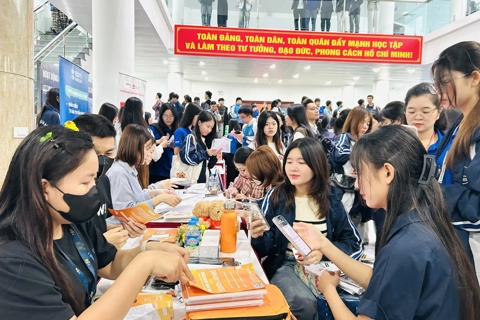Cultural resources are soft power in Hanoi's creative city development strategy
Once becoming a creative city, Hanoi will have to materialize its long-term programs and action plans on visions and political ties in the city.
Cultural resources have become soft power in the development strategy of Hanoi as a creative city, helping to build political culture, business culture, and penetrating deeply into all other fields of the capital city.
Ngo Thi Thanh Hang, member of the Party Central Committee and Permanent Deputy Secretary of the Hanoi Party's Committee made the statement at the seminar titled "Cultural resources in the development strategy of Hanoi creative city" on September 28.
| Ngo Thi Thanh Hang, member of the Party Central Committee and Permanent Deputy Secretary of the Hanoi Party's Committee, speaks at the seminar. Photo: Hoa An |
Ms. Hang said that Hanoi, which has a long history of a millenary culture, has been honored by the United Nations Educational, Scientific and Cultural Organization (UNESCO) as a "City for Peace" and "Creative City".
In the city's development process, the municipal government and people of Hanoi always attach great importance to culture regarding it as the spiritual foundation of society, endogenous strength and the great motivation to develop the capital city, Ms. Hang added.
She stressed that building a beautiful and impressive city image with friendly and elegant people in the eyes of international friends will contribute to enhancing Hanoi’s prestige and position in the country and on the international arena.
Mr. Michael Croft, UNESCO Representative to Vietnam, noted that joining the Creative Cities Network is a start in the process of positioning Hanoi's development as a Creative Capital.
In the years to come, Vietnam can establish a network of UNESCO Creative Cities nationwide. Besides the socio-economic benefits, this creative “belt” will be a powerful expression for a modern, dynamic and creative Vietnam, Mr. Michael Croft said.
For his part, Vice President of the Hanoi People's Committee Ngo Van Quy assessed that all recommendations and solutions made at the seminar aim to effectively leverage cultural resources to turn Hanoi into a creative center in Vietnam as well as Southeast Asia, and strengthen Vietnam's soft power in the process of globalization and international integration.
On October 31, 2019, Hanoi became the first city of Vietnam to receive an official designation by UNESCO as a Creative City, which coincided with the 20th anniversary of the city’s designation as a UNESCO City for Peace.
Following Hanoi’s successful application to the Creative Cities Network, UNESCO has been working with the city leadership and the central government to realize a vision of Hanoi as a Creative Capital.
In keeping with its commitments to UNESCO, once becoming a creative city, Hanoi will have to materialize its long-term programs and action plans on visions and political ties in the city.
Moreover, Hanoi will create favorable conditions to lift the field of creativity and design to new heights, as well as to raise awareness in the community to undertake step-by-step initiatives and turn Hanoi into a creative city.










